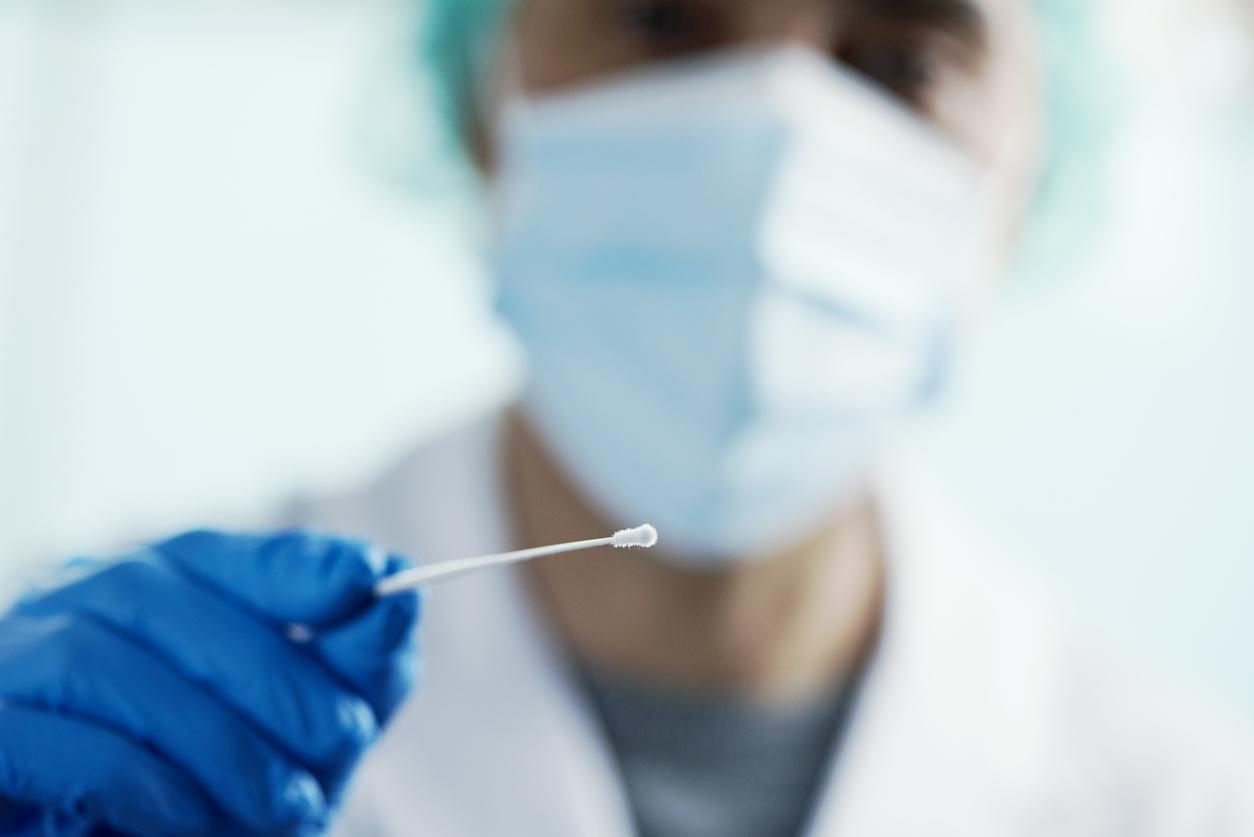The stocks of red blood cell bags at the French Blood Establishment have reached their lowest reserves in a decade. At the dawn of a second wave of Covid-19, it is necessary to continue to give blood, according to Hervé Meinrad, the director of collection and production of the EFS.
-1602674574.jpg)
- The blood stocks of the French Blood Establishment have never been so low for a decade.
- With the massive use of teleworking and bans on gatherings, mobile collection points in companies and universities have seen their capacity reduced by 80% and 90% respectively.
A single blood donation can potentially save three lives. At a time when France is preparing to undergo a second wave of Covid-19, the French Blood Establishment (EFS) is trying to make itself heard. In September, EFS stocks fell to their lowest level in a decade, with only 82,000 bags of red blood cells available. In the particular context of the Covid-19 pandemic, the generalized containment last spring and the massive use of telework in certain companies, the donations that used to flow in have become rarer. “We need to collect 10,000 donations a day to meet the needs of health facilitiessays Hervé Meinrad, director of collection and production at the French Blood Establishment. We currently deliver 45,000 blood bags per week, so we need to have the useful and necessary supply to meet the needs of health establishments..”
Between 80% and 90% fewer donations on mobile collection sites
Usually, donors do not have to go to the fixed sites of the EFS since mobile sites go near the workplace to collect their blood. But Covid-19 and confinement have put a brake on this dynamic. “We operate with 120 fixed sites and a hundred mobile collections per day that we organize throughout France, including 20 to 30% in companies and universities. It’s something that has pretty much disappeared since mid-March.emphasizes Hervé Meinrad. We have lost more than 90% of collections in schools and universities, and more than 80% of what we provide in businesses. Over the period, it was more than 100,000 blood donations that we were unable to obtain, so we looked for new collection places with rooms lent by the town halls, but we did not manage to completely complete stocks.”
By the very admission of the French Blood Establishment, although the municipalities have mobilized to make premises available, it is currently complicated to compensate for the loss of donations usually from businesses and schools. The other difficulty attributable to Covid-19 is at the level of town halls, which cannot provide rooms that are too large, because of bans on gatherings.
While donations are becoming rarer, requests from hospitals remain constant. “Sixty percent of blood transfusions are related to operations that are scheduled, they are not emergency situations. But these are interventions that are nevertheless necessary, in surgery or in oncology for example.”, tempers Hervé Meinrad.
As a precaution, the French Blood Establishment is refusing donations from anyone who has had symptoms of Covid-19. Donors must respect a period of 28 days after recovery – 14 days for contact cases – before being able to participate in a collection again. This decision serves on the one hand to protect the health of the agents present at the collection site, but also to avoid potential contamination of the blood. “We do not do a specific test [au coronavirus] on donations since it is a virus which has a respiratory transmission route”, recalls Hervé Meinrad, this is the reason why the screening of donors is carried out upstream, during the questionnaires and examinations carried out by the teams before the Don.
Preparing stocks to face a second wave
With the coronavirus crisis, blood collection seems essential to keep the health system afloat, which could need it. With a single donation, the EFS manufactures three products: bags of red blood cells, blood platelets and blood plasma. Knowing that blood bags have a lifespan of 42 days and that platelets only last a week, it is necessary for collection centers to have a continuous flow of donors to meet the needs of health establishments and sick. “This is the goal of the process that we launched a few weeks ago: to replenish the stocks which are very low, to make them rise relatively quickly so that in the weeks to come, if we ever had to face a second major wave, we can have a stock that allows us to cope in the first instance.”
While the President of the Republic, Emmanuel Macron, must speak in a few hours, and the specter of harsher sanctions, such as partial re-containment and the curfew, are in everyone’s mind, Hervé Mainrad wants to be confident: “We will adapt by modifying our opening hours and by warning around our collection points to allow the French to come and donate despite these constraints.”
All information relating to blood donation can be found on the phone application and the website of the French Blood Establishment. On the mobile application, it is possible to carry out a test indicating whether or not you are able to donate blood.
.

















